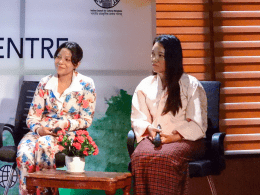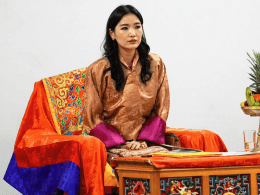Beginning with the next academic session, Bhutan will increase the minimum age for school admission to six years, aligning the country’s education policy with international standards. The Ministry of Education and Skills Development (MoESD) announced the reform during a “Meet-the-Press” session yesterday.
As a transitional measure, children aged five years and six months or older will still be eligible for admission next year. This one-time flexibility is intended to ensure no child is left out during the policy shift.
Aligning with Global Best Practices
According to the Department of School Education, the change reflects the guidelines of the National Education Policy 2025, which stipulates that children must be six years old at the time of admission to Pre-Primary (PP).
Director Tashi Namgyal explained that extensive global research by UNESCO and UNICEF supports six years as the ideal starting age for formal schooling. “Younger children benefit more from play-based early learning than from structured academics. This is a critical period for physical growth, mental health, and brain development,” he said.
Internationally, countries with high-performing education systems, such as Finland and Estonia, also start formal schooling at six or seven years old. Research spanning 1982 to 2017 shows that around 72 per cent of countries worldwide follow this approach.
Strengthening Early Childhood Care and Development (ECCD)
To support the change, the ministry is expanding early childhood services so that all children have access to learning opportunities before entering Grade I. Under the 13th Five-Year Plan, the government aims for 100 per cent ECCD coverage for children aged three to five.
Tashi Namgyal said that the ministry is building 47 new ECCD centres and upgrading 158 existing ones. ECCD facilitators, who previously underwent a maximum of one month of training, are now enrolling in a two-year diploma programme at Paro College of Education.
Focus on Quality and Preparedness
The ministry emphasises that the reform is designed to improve preparedness and learning outcomes. By ensuring children are developmentally ready for school, officials believe the policy will bring greater consistency to the education system and reduce the long-term negative effects of starting formal learning too early.
“This is not unique to Bhutan,” Tashi Namgyal noted. “It is a globally recognised approach, backed by strong evidence that quality early years education leads to better performance later in life.”







